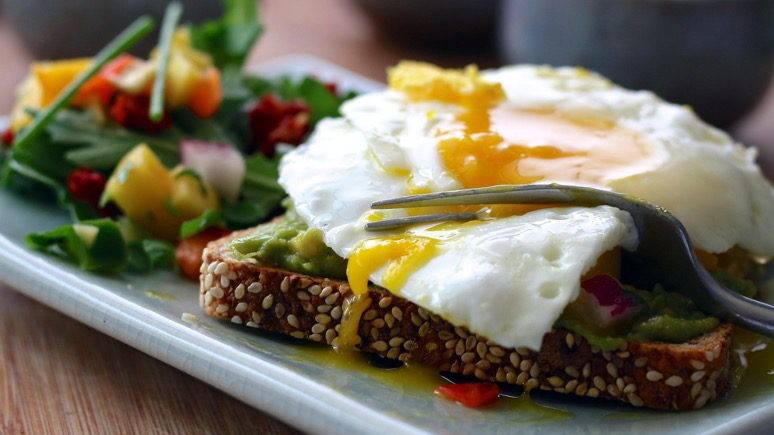Introduction
Have you ever heard about Meatless Monday? It is an international project that encourages people to avoid eating meat on Mondays to improve their health and help the planet. Statistics show that about 1/3 of people who continually participated in Meatless Mondays subsequently became vegetarians. There are different types of vegetarians, including vegans, ovo-lacto-vegetarians, ovo-vegetarians, lacto-vegetarians, pescatarians, and flexitarians.
The ovo-vegetarian diet is a type of vegetarian diet that avoids consuming all food derived from animals except for eggs and egg products. In addition, ovo-vegetarians usually choose humanely sourced eggs and egg products.
A well-balanced ovo-vegetarian diet has many health benefits, including improved heart health, reduced risk of heart diseases, type 2 diabetes, and cancer, improved insulin sensitivity and better blood sugar control in people who already have type 2 diabetes. In addition, an ovo-vegetarian diet, similarly to other vegetarian diets, support gut health and may promote healthy weight loss.
Key points
If you want to shift to an ovo-vegetarian diet, you should avoid consuming meat, poultry, fish, seafood, dairy products, and foods containing ingredients derived from meat or dairy. Instead, you should focus your diet on:
- vegetables – tomatoes, cucumbers, leafy greens, potatoes, cabbage, broccoli, squash, bell peppers, carrots, etc.
- fruits and berries – apples, bananas, mangoes, papayas, strawberries, blueberries, blackberries, raspberries, oranges, avocadoes, etc.
- nuts and seeds – almonds, walnuts, cashews, macadamia, flaxseeds, chia seeds, pumpkin seeds, hemp seeds, etc.
- beans and legumes – black beans, chickpeas, kidney beans, lentils, green peas, soybeans, tofu, etc.
- grains – oats, rice, cuscus, quinoa, pasta, bread, bulgur, buckwheat, popcorn, amaranth, etc.
- eggs and egg products
- vegetable oils – olive oil, canola oil, flaxseed oil, avocado oil, coconut oil, etc.
- dairy substitutes – nut milk, soy milk, oat milk, dairy-free yogurts and cheeses, etc.
It is essential to remember that simply cutting meats and dairy products from your diet are not enough to experience all the benefits of the ovo-vegetarian diet. To make your meals nutrient-dense and balanced, choose mostly whole foods and limit the consumption of processed ones. Vegetarian processed food is just as unhealthy as regular processed food.
Contraindications
It is recommended for pregnant and breastfeeding women and children under the age of 5 to consult a registered dietitian before trying an ovo-vegetarian diet.
How to avoid possible nutritional deficiencies
An ovo-vegetarian diet is a healthy nutritional approach that can meet your body’s requirements if well-balanced. However, if you don’t plan your meals, you may experience deficiencies in some nutrients, including iron, calcium, zinc, omega-3 fatty acids, vitamin D, and vitamin B-12. To ensure that you get enough of these nutrients, include some of the following food options in your diet:
- iron: nuts, lentils, beans, peas, spinach, raisins, fortified cereals;
- calcium: broccoli, brussels sprouts, beans, peas, kale, chars, soy products;
- zinc: oats, legumes, tofu, nuts (cashews, almonds), seeds (pumpkin, hemp);
- omega-3 fatty acids: seeds (flaxseeds, hemp seeds, and chia seeds), nuts (walnuts), plant oils (flaxseed oil), seaweed, fortified cereals and juices;
- vitamin D: mushrooms, fortified foods;
- vitamin B-12: eggs, fortified foods;
For some people, it may be challenging to include enough of the listed nutrients in their diet. An alternative way to ensure adequate intake of these compounds is by taking supplements. Consult the doctor or nutritionist about the exact supplements you may need.
Tips on improving your dieting experience
Some people find it challenging to keep a healthy ovo-vegetarian diet at the beginning of their journey. Here are some tips you can use if you struggle with diet balancing as an ovo-vegetarian:
- start gradually (it will help you avoid stomach issues caused by a rapid change and increase the likelihood of you sticking with this diet for long-term)
- make your diet diverse to ensure you get enough vitamins and minerals (include a variety of fruits and vegetables, whole grains, legumes, beans, nuts, seeds, etc.)
- limit the consumption of foods high in sugar, sodium, and fats
- search new recipes on websites about vegetarianism
- plan your meals ahead
- explore various plant-based protein options (try tofu, edamame, tempeh, seitan, beans, lentils, green peas, teff, spelt, nutritional yeasts, spirulina, etc.)
- consult a nutritionist if needed (the specialist can help you plan your diet to make it more balanced and advise you about the supplements you may need)
Conclusions
Overall, an ovo-vegetarian diet, if well-balanced, can be a healthy nutritional approach that provides many health benefits. In addition, a plant-based diet is more environmentally friendly than an animal-based one.
Ensuring you get enough of all essential macro and micronutrients is necessary to avoid deficiencies. If you have difficulty planning your diet, you may wish to consult a specialist.














Leave a Reply
You must be logged in to post a comment.